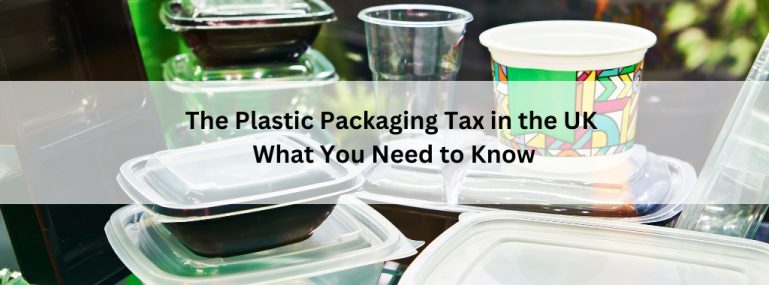On April 1, 2022, the UK introduced the Plastic Packaging Tax (PPT), which applies to all plastic packaging that contains less than 30% recycled plastic. This tax aims to incentivize the use of recycled plastics, ultimately boosting recycling rates, enhancing waste collection, and reducing the amount of plastic waste sent to landfills or incineration.
The tax applies to any packaging component, defined as a product designed to contain, protect, handle, deliver, or display goods at any point in the supply chain, from the producer to the end consumer. The Plastic Packaging Tax covers plastic packaging components made from materials typically regarded as more sustainable, such as oxo-degradable, biodegradable, and compostable plastics. Companies that manufacture or import fewer than 10 tonnes of plastic packaging annually are exempt from paying this tax.
Manufacturers and importers of plastic packaging are required to pay the tax based on the metric tonnes of plastic packaging they produce or import. The initial PPT rate, set at £200 per tonne on April 1, 2022, has been subject to annual increases. From April 1, 2024, the tax rate will rise from £210.82 per tonne to £217.85 per tonne.
Businesses that import or produce more than 10 tonnes of plastic packaging within a 12-month period must register for the Plastic Packaging Tax. To qualify for exemptions, companies need to provide evidence that their plastic packaging contains at least 30% recycled material. This entails keeping records on the types of plastics used, the percentage of recycled plastic, and the volume of each packaging component.
Failure to comply with these requirements or providing false information can result in significant penalties. Non-compliance can incur a £500 fixed penalty, followed by a daily charge of £40 for continued violations. In more severe cases, companies could face criminal prosecution, with penalties including up to 12 months in prison and fines of either £20,000 or three times the amount of tax avoided.
Implementing the Plastic Packaging Tax successfully will require unprecedented levels of collaboration, clear communication, and investment to ensure compliance across the industry.
ComplianceXL offers specialized consulting services to assist businesses in navigating the complexities of the Plastic Packaging Tax. We help companies obtain crucial information from their suppliers, including details about the plastic packaging components used, recycling methods, and the volume or percentage of recycled plastic within their packaging. With ComplianceXL’ s comprehensive compliance management platform, companies can conduct thorough due diligence, engage with suppliers, and complete the necessary compliance documentation efficiently.
FAQs:
1. What products are subject to the Plastic Packaging Tax?
The Plastic Packaging Tax applies to all plastic packaging that contains less than 30% recycled plastic, including oxo-degradable, biodegradable, and compostable plastics.
2. What exemptions exist under the UK Plastic Packaging Tax?
Exemptions include businesses that produce or import fewer than 10 metric tonnes of plastic packaging within a 12-month period, packaging with at least 30% recycled plastic, and packaging for licensed human medicines.





